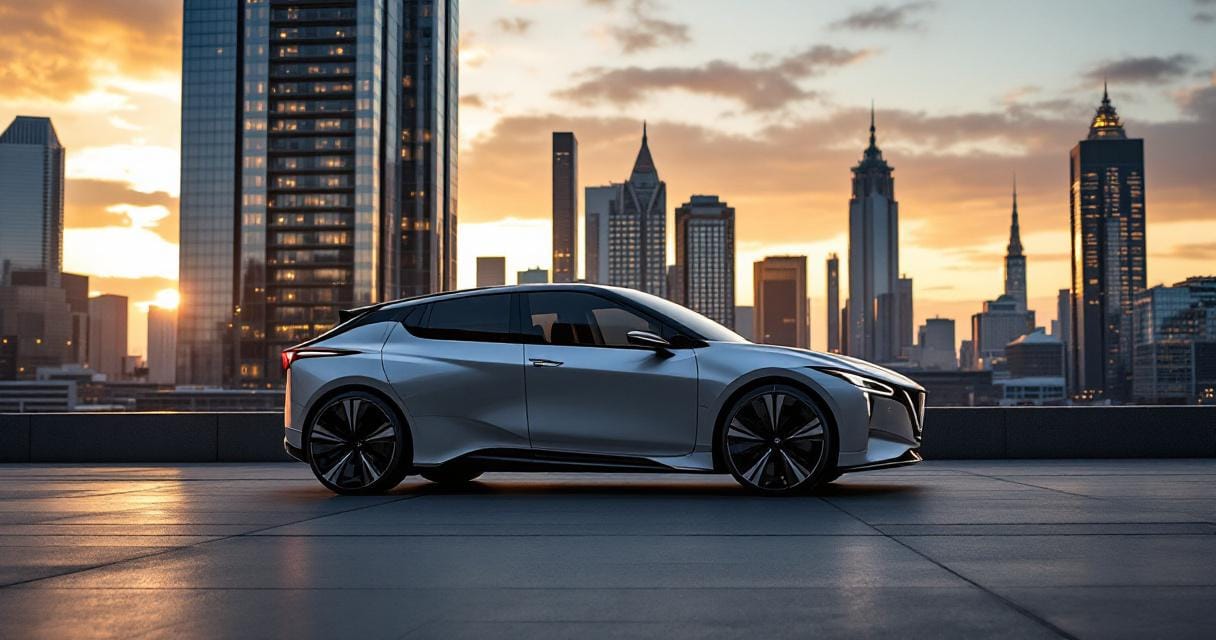The automotive world is buzzing with anticipation as Nissan prepares to unveil its completely reimagined 2026 Leaf, marking a dramatic departure from the pioneering EV that first hit roads in 2010. With promises of doubled range, revolutionary battery technology, and a bold new design language, the next-generation Leaf aims to reclaim its position as a leader in the mainstream electric vehicle market.
A Design Revolution: From Quirky to Contemporary
Gone are the days of the Leaf's distinctive but polarizing appearance. The 2026 model embraces Nissan's new "Chill-Out" design philosophy, featuring a sleeker, more aerodynamic profile that wouldn't look out of place next to premium EVs. Early renders suggest a lower stance, flush door handles, and a closed-off grille with subtle LED accents that create a futuristic yet approachable aesthetic.
The interior receives an equally dramatic overhaul, with sustainable materials throughout and a minimalist dashboard dominated by a 15-inch central touchscreen. Nissan promises the cabin will offer 20% more passenger space despite the vehicle's more compact exterior footprint, achieved through innovative packaging of the new battery system.
Breakthrough Battery Technology Doubles the Range
Perhaps the most significant upgrade comes in the form of Nissan's next-generation solid-state battery technology. The 2026 Leaf will offer two battery options: a 60 kWh pack delivering approximately 300 miles of range, and a larger 87 kWh configuration pushing beyond 400 miles on a single charge.
These solid-state batteries not only provide increased energy density but also support ultra-rapid charging capabilities. Nissan claims the new Leaf can charge from 10% to 80% in just 15 minutes when connected to a 350kW DC fast charger, addressing one of the primary concerns that has held back EV adoption.
ProPILOT 3.0: Autonomous Features for the Masses
The 2026 Leaf debuts Nissan's ProPILOT 3.0 system, bringing near-autonomous driving capabilities to the affordable EV segment. This advanced driver assistance suite includes:
- Highway hands-free driving with automatic lane changes
- Automated parking in tight spaces
- Emergency autonomous braking with pedestrian and cyclist detection
- AI-powered route optimization that factors in charging stops and traffic conditions
These features, previously reserved for luxury vehicles, demonstrate Nissan's commitment to democratizing advanced automotive technology.
Pricing Strategy: Maintaining Affordability
Despite the significant technological advances, Nissan remains committed to positioning the Leaf as an accessible entry point into electric mobility. Industry insiders suggest the base model will start around $28,000 before federal tax incentives, making it one of the most affordable long-range EVs on the market.
The company plans to offer innovative financing options, including battery leasing programs and subscription services that could lower the monthly cost of ownership below that of comparable gas-powered vehicles.
Manufacturing and Sustainability
The 2026 Leaf will be produced at Nissan's newly retrofitted Smyrna, Tennessee plant, which runs entirely on renewable energy. The manufacturing process incorporates recycled materials from previous-generation Leaf batteries, creating a circular economy model that reduces waste and environmental impact.
Nissan has also announced partnerships with major charging networks to provide Leaf owners with two years of complimentary charging at participating stations, further reducing the total cost of ownership.
Market Impact and Competition
The reimagined Leaf enters an increasingly crowded EV marketplace, competing directly with the Chevrolet Bolt EUV, Volkswagen ID.4, and Tesla Model 3. However, Nissan's combination of proven reliability, extensive dealer network, and aggressive pricing could give it a significant advantage.
Early pre-orders, which opened last month, have already exceeded 50,000 units globally, suggesting strong consumer interest in the new model.
Looking Ahead
The 2026 Nissan Leaf represents more than just an evolution of an existing model—it's a complete reinvention that addresses every criticism of previous generations while maintaining the accessibility that made the original Leaf a pioneer. With deliveries expected to begin in late 2025, the new Leaf could play a crucial role in accelerating mainstream EV adoption and helping Nissan achieve its goal of carbon neutrality by 2050.
For consumers considering their first electric vehicle, the 2026 Leaf offers a compelling combination of range, technology, and value that may finally make the switch to electric irresistible.
Target Audience: Environmentally conscious consumers aged 25-55, current EV owners looking to upgrade, first-time EV buyers, tech enthusiasts, and automotive industry professionals interested in mainstream electric vehicle developments.
